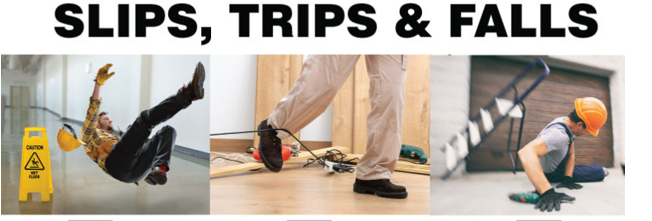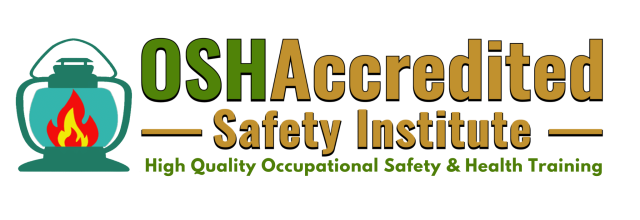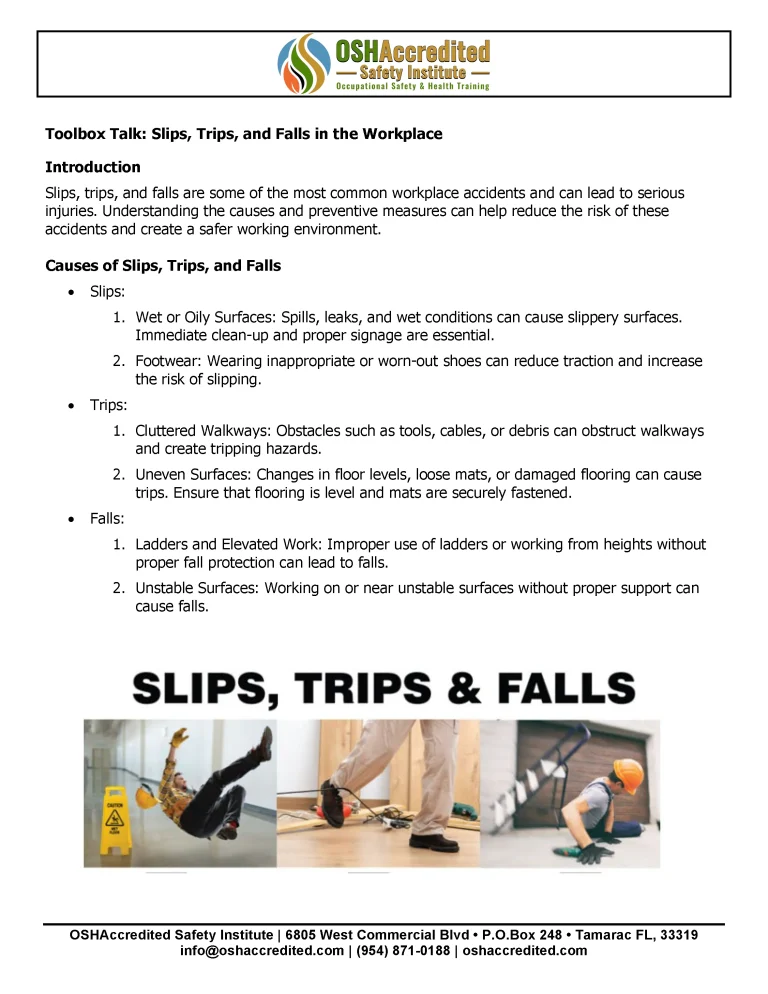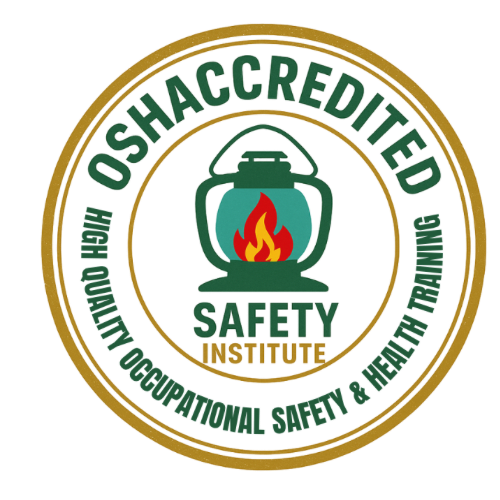Toolbox Talk: Slips, Trips, and Falls in the Workplace
August 20, 2024 2025-03-30 2:17Toolbox Talk: Slips, Trips, and Falls in the Workplace
Slips, Trips, and Falls in the Workplace
Toolbox Talk: Slips, Trips, and Falls in the Workplace
Introduction
Slips, trips, and falls are some of the most common workplace accidents and can lead to serious injuries. Understanding the causes and preventive measures can help reduce the risk of these accidents and create a safer working environment.
Causes of Slips, Trips, and Falls
- Slips:
- Wet or Oily Surfaces: Spills, leaks, and wet conditions can cause slippery surfaces. Immediate clean-up and proper signage are essential.
- Footwear: Wearing inappropriate or worn-out shoes can reduce traction and increase the risk of slipping.
- Trips:
- Cluttered Walkways: Obstacles such as tools, cables, or debris can obstruct walkways and create tripping hazards.
- Uneven Surfaces: Changes in floor levels, loose mats, or damaged flooring can cause trips. Ensure that flooring is level and mats are securely fastened.
- Falls:
- Ladders and Elevated Work: Improper use of ladders or working from heights without proper fall protection can lead to falls.
- Unstable Surfaces: Working on or near unstable surfaces without proper support can cause falls.

Preventive Measures
- Maintain Cleanliness:
- Regular Clean-Up: Promptly clean up spills and remove obstacles from walkways. Use appropriate cleaning supplies and techniques.
- Proper Storage: Store materials and equipment in designated areas to keep walkways clear.
- Improve Footwear:
- Appropriate Shoes: Wear shoes with non-slip soles and adequate support. Replace worn-out footwear promptly.
- Use Safety Equipment:
- Fall Protection: Use guardrails, harnesses, or other fall protection systems when working at heights. Ensure these systems are properly installed and maintained.
- Ladder Safety: Inspect ladders before use, and ensure they are placed on stable, level surfaces. Always maintain three points of contact with the ladder.
- Inspect Work Areas:
- Routine Inspections: Regularly check work areas for hazards such as uneven surfaces or loose mats. Report and address any issues immediately.
- Maintenance: Repair any damage to flooring or equipment to prevent tripping hazards.
Summary
To prevent slips, trips, and falls in the workplace, it is crucial to maintain cleanliness, use appropriate footwear, and employ safety equipment effectively. Regular inspections and prompt maintenance of work areas further reduce the risk of accidents. By staying vigilant and proactive, you can help create a safer work environment and protect yourself and your colleagues from injury.





